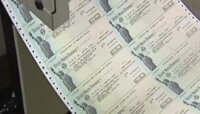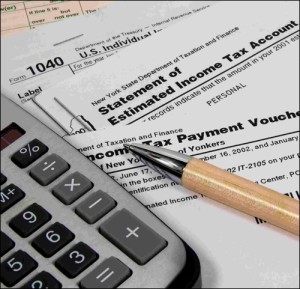Dear Bonnie: I’m puzzled about my taxes. This year I was finally able to itemize deductions. I turned over a big batch of receipts for medical expenses to my accountant and she said I couldn’t take the deduction. I thought medical expenses were something you could deduct if you itemize. Am I wrong about that? – Kelly, Sonoma
Dear Kelly: I think I know what’s going on here. The problem with medical deductions is that you have to subtract 7.5 percent of your adjusted gross income from the total of the medical and what’s left is what you can take as a deduction. So if you’re making say $100,000 per year, you lose the deduction on the first $7,500 of medical expenses. My guess is that your income was high and your total medical bills were too low.
So what’s a girl to do? How about opening a Health Savings Account (HSA)? These accounts are tax-advantaged medical savings accounts that were created by Congress back in 2003 to encourage people to save for future health problems. And you will get a write off.
Here’s how it works: You have to be enrolled in a high-deductible health plan. If you’re single the deductible must be at least $1,200 per year and if you opt for family coverage the deductible must be $2,400 per year. You are not eligible if you are enrolled in Medicare or if you can be claimed as a dependent on someone else’s tax return.
You cannot just open a savings account and call it an HSA. The HSA must be opened through a trustee such as a bank or an insurance company, and you can use a provider that is different than your health insurance company. Check to see if your work offers a plan, if so, maybe your employer will make pre-tax contributions to the plan on your behalf.
Once you set up the HSA, make a contribution to it. If you are single, for 2012, you may contribute up to $3,100, and if you have family coverage you may contribute up to $6,250. If your employer makes pre-tax contributions on your behalf, you must reduce your payment by the amounts contributed by your employer.
All contributions for the year must be made by the due date of the tax return, and don’t include extensions. This means that you have until April 15, 2013 to make a contribution to be credited to 2012.
You will receive a debit card and/or checks to pay for your qualified medical expenses from the HSA. All medical expenses allowed as a deduction on Schedule A can be paid for from your HSA account. Note that over-the-counter drugs (unless your doctor writes a prescription for them) do not qualify; however, insulin is eligible to be deducted.
I know you’ve been waiting for it, so here’s the really good news: You take the deduction for your contribution on page one of Form 1040 under adjustments to income. No 7.5 percent haircut! Instead you enjoy the full benefit of the amount you paid into the plan. The medical expenses you paid from the HSA cannot be taken on Schedule A, Itemized Deductions. That would be double dipping.
Any interest earned on the HSA account is tax-free and does not have to be reported to the IRS.
At year’s end, you will receive a 1099 showing the amounts of distributions taken from the HSA. Provide this document to your tax pro and indicate whether or not any of the distributions were for anything other than qualified medical expenses. Any distributions for non medical expenses are included in income in your tax return.
Please note that if you make excess contributions to your HSA, you will be subject to a 6 percent excise tax. For more information on HSAs consult Publication 969 on the IRS website: Health Savings Accounts.




Be First to Comment